A persistent labor shortage is hitting U.S. employers hard, and the insurance industry is feeling the effects. As of August 2023, 8.8 million jobs remained unfilled, with just 6.3 million unemployed workers.
Table of Contents
An aging workforce is exacerbating the problem. Half of current insurance industry professionals will retire in 15 years, according to U.S. Bureau of Labor Statistics (BLS) data, leaving some 400,000 jobs unfilled. Yet 63% of insurance companies expect to add staff in the next 12 months, largely due to increasing business volume, according to Jacobson’s Q3 2023 Insurance Labor Market Study. Where will these workers come from?
Taking proactive measures to recruit and retain younger talent can help insurance agencies fill the talent gap, ensuring the continued growth of their businesses and the industry. Here’s a closer look at the challenges facing the insurance industry, what young employees want from their jobs, and how to attract and retain them.
Current Challenges in the Insurance Industry
The number of insurance industry employees aged 55 and older has grown by 74% in the past 10 years, according to BLS data. Fewer than 25% of insurance industry professionals are 35 or younger. Combined with high turnover in entry-level roles, the aging of the industry means a severe shortage of younger talent to fill vacant roles when older employees retire.
Technology-driven disruption in the industry is compounding the problem. Formerly confined to the back office, technology plays an increasingly important role in all aspects of the insurance industry, from marketing and sales to risk assessment and underwriting. To remain competitive, agencies need tech-savvy employees. Despite the growing use of emerging technologies in the industry, younger workers largely perceive insurance as dull.
Identifying the Target Employee
Recruiting millennial workers (aged 27 to 42 as of 2023) and the younger Generation Z, just entering the workforce, is essential to the continued success of insurance agencies. These digital natives are well-equipped to tackle the technology transitions required to remain competitive. Agencies exhibiting high adoption of digital technology, such as self-service portals, live online chats, and artificial intelligence (AI), enjoyed a 70% growth rate, compared to a 10% growth rate for low and medium adopters, according to The State of Digital in Independent Insurance Agencies.
Analytical and problem-solving skills, interpersonal communication, and math skills are also essential for future insurance industry employees. Although risk management isn’t widely taught at universities, new graduates from a variety of disciplines can find careers in insurance. Degrees in business, technology, humanities, and more can translate into success as a salesperson, claims adjuster, actuary, or marketer.
What are today’s young employees seeking from their jobs? Competitive compensation, opportunities for advancement, and the chance to make a difference in the world are top motivators. Nearly two-thirds of millennials say work-life balance is “very important,” according to Gallup, and 80% evaluate a company’s mental health policies and support when considering a job opportunity, Deloitte found. Young employees also seek flexible schedules and remote work: Millennials polled by career site The Ladders say working remotely 60% to 80% of the time is ideal.
Creating Attractive Career Opportunities
Try these tactics to attract young employees to your agency.
Offer competitive compensation packages
Money is a major motivator for young employees: Fully half of Generation Z and millennial workers live paycheck to paycheck, according to Deloitte data. A competitive salary is table stakes, as are retirement plans, health insurance, and paid time off. Sweeten the pot with additional benefits such as wellness programs, stipends for childcare or commuting costs, and assistance repaying student loans.
Provide opportunities for career growth and advancement
According to The Ladders, opportunities for advancement are the number one factor millennials consider when seeking jobs. Eight in 10 expect to be promoted within two years. Your recruiting efforts should emphasize prospects for career growth and lay out possible career paths for various positions.
It’s predicted that insurance industry professionals will increasingly work cross-functionally, giving young workers more opportunities to test different roles. If retirement is on the horizon for older professionals at your agency, point out these chances to climb the career ladder.
Highlight the industry’s stability and job security
Having survived a pandemic and seen their parents battered by economic crises and layoffs, millennials and Generation Z seek security and stability. Emphasize that, unlike many industries, insurance offers a product both businesses and consumers need in any economy. Many insurance industry jobs require experience and training, which can give young workers confidence that as they advance, their jobs will be secure.
Emphasize the social impact of insurance
Among workers aged 18 to 29, 72% say it’s “extremely important” for businesses to provide long-term social benefits; 63% say businesses should promote diversity, equity, and inclusion (DE&I). Seven in 10 young employees say they would quit their jobs to work at a company that has a bigger positive social impact, Gallup reports.
Educate prospective employees about the many ways insurance companies are tackling issues like climate change — and how they can play a role. While climate-change-fueled natural disasters caused insured losses of over $120 billion in 2022, causing some insurers to pull out of certain states or deny coverage, others are looking for ways to help:
- The number of private insurers offering flood insurance has grown by 24% since 2016, according to the Insurance Information Institute (III), providing consumers with an alternative to FEMA’s National Flood Insurance Program.
- Lloyd’s of London is working with the United Nations to improve access to insurance for nations that are especially vulnerable to climate change.
- The III’s Resilience Accelerator analyzes data from insurance companies, government organizations, and III research to help predict weather-related events so preventive action can be taken.
- Insurers may opt to direct investments toward climate flood resilience efforts or technology that provides advanced warnings of floods, helping to mitigate claims and safeguard customers. They may also offer incentives to small businesses with sustainable practices, such as using electric vehicles (EVs). For personal lines, they may reward customers who commute less, adopt smart home technologies, or purchase EVs.
Make sure your company walks the walk, not just talks the talk. Are you actively committed to reducing your carbon footprint? If not, young employees will find out.
How Does Technology Fit In?
Data is the foundation of the insurance industry, and technology will allow young employees to do more with data than ever before. Automation and AI can streamline critical functions and create self-serve portals delivering customized insurance products for customers. Data analysis and machine learning technology can help insurance companies study and predict weather-related property losses. Emphasize the opportunities young employees will have to master emerging technologies and innovate improvements to the industry.
Invest in Skills Development
Some 78% of roles for which insurance companies plan to hire in the next 12 months require prior experience. Promoting from within can solve this problem and satisfy young employees’ desire for career development. Look for ways to foster a culture of continuous learning by upskilling and reskilling existing employees. Have experienced employees mentor newer workers to share institutional knowledge. Invest in professional development by paying for continuing education courses or memberships in industry organizations where young workers can learn from peers. Consider starting an internship program to attract potential employees whom you can train from the ground up.
Looking Ahead
As existing professionals retire, addressing the talent gap is essential for future-proofing the insurance industry. By committing to talent development and innovation, your agency can attract young workers, helping to ensure both your own long-term success and that of the industry as a whole.
About Neilson Marketing ServicesSince 1988, Neilson Marketing Services has been implementing innovative marketing solutions and strategies for our clients in all areas of marketing. Contact us today at (866) 816-1849 to put our talent, expertise, and vast resources to work for you. Let’s make things happen, together!
